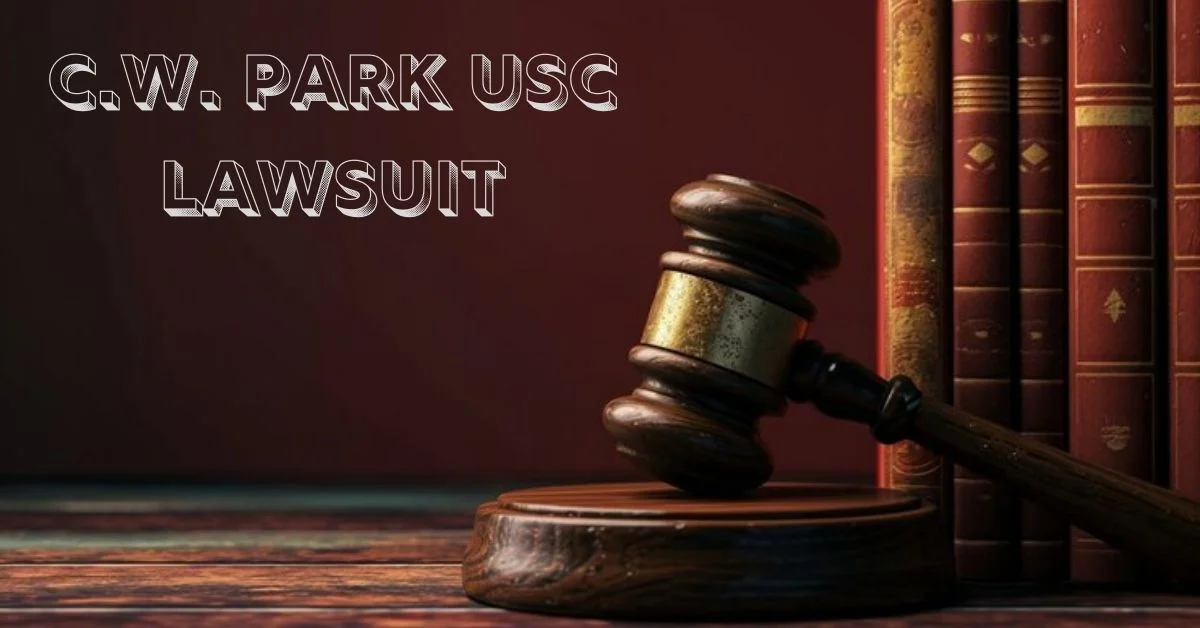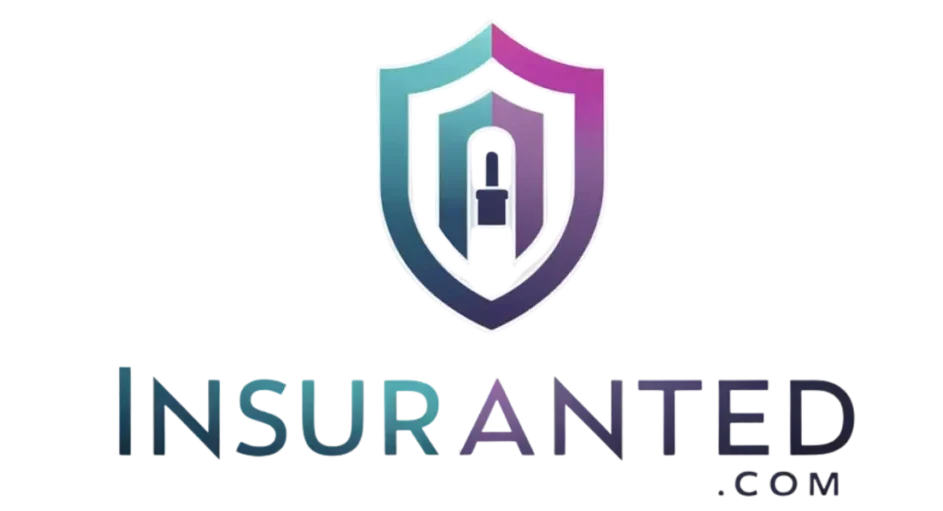The C.W. Park USC lawsuit isn’t just about legal issues—it’s a wake-up call that could shake up how universities operate. It’s making people wonder if schools like USC are truly holding themselves accountable and sticking to the ethical rules they set. Everyone, from students to faculty, is paying close attention to how the university will handle these severe accusations.
The C.W. Park USC lawsuit has captured the attention of legal experts, students, and educators alike. This case involves serious allegations against a prominent professor and raises important questions about student rights, the legal framework governing higher education, and the potential for systemic reform. This blog post aims to delve into the complexities of the lawsuit, analyze its legal implications, and explore what it might mean for the future of higher education.
Brief Overview Of The C.W. Park USC Lawsuit
The C.W. Park USC lawsuit centers around allegations of misconduct and violations of university policy by a respected faculty member, Dr. C.W. Park. The University of Southern California (USC) has faced legal challenges from students who claim their rights were infringed upon, alleging deficient handling of harassment issues by USC. The case has sparked widespread debate about the responsibilities of higher education institutions and their approach to addressing such sensitive matters.
This lawsuit is significant because of the individuals involved and because it highlights broader issues within higher education. Understanding the legal implications and potential outcomes of this case can provide valuable insights into the challenges faced by students, faculty, and universities.
Purpose Of The Article
This article explores the legal ramifications of the C.W. Park USC lawsuit, the impact on student rights, and the potential for higher education reform. By examining the case in detail, we hope to shed light on the systemic issues contributing to similar legal challenges and propose potential solutions for improving governance and accountability in universities.
Background Of The C.W. Park USC Lawsuit
Key Allegations and Parties Involved
At the heart of the C.W. Park USC lawsuit are severe allegations against Dr. C.W. Park, a distinguished professor at USC. The plaintiffs, a group of students, have accused Dr. Park of engaging in behavior that violated university policies and infringed upon their rights as students. The lawsuit also implicates USC for failing to address these concerns and adequately protect its students.
Key Allegations Include:
- Misconduct: Accusations of inappropriate behavior and violations of ethical standards.
- Breach of Contract: Claims that the university failed to uphold its contractual obligations to students.
- Violation of Student Rights: Allegations that student privacy and due process were compromised.
Timeline Of Events
Understanding the timeline of events is crucial for grasping the full context of the lawsuit. Below is a chronological overview of the key developments leading up to the legal action:
| Date | Event |
| 2022 | Initial complaints were filed against Dr. C.W. Park by students. |
| Early 2023 | USC conducts an internal investigation into the allegations. |
| Mid-2023 | The plaintiffs file a formal lawsuit against Dr. Park and USC. |
| Late 2023 | Preliminary hearings and legal proceedings begin. |
| 2024 | Ongoing litigation and potential settlement discussions. |
Legal Framework Surrounding The Case
The C.W. Park USC lawsuit is governed by a complex legal framework that includes federal and state laws and university policies. Key legal considerations include:
- Title IX: Federal law prohibiting sex discrimination in education, which may be relevant if the allegations involve gender-based misconduct.
- Due Process Rights: Students’ legal rights to fair and impartial treatment in disciplinary actions.
- Contract Law: The university’s obligations under its contracts with students, including adherence to its policies and procedures.
Legal Implications Of The C.W. Park USC Lawsuit
Potential Legal Outcomes
The outcome of the C.W. Park USC lawsuit could set important legal precedents for higher education institutions. Several potential scenarios could emerge, each with its implications:
- Settlement: The case could be settled out of court, with USC agreeing to pay damages or implement policy changes. This outcome may limit public scrutiny but could still lead to significant reforms within the university.
- Trial: If the case goes to trial, a verdict in favor of the plaintiffs could result in substantial financial penalties for USC and establish new legal standards for handling similar cases.
- Dismissal: The lawsuit could be dismissed if the court finds insufficient evidence to support the claims. This outcome emboldened other universities to resist legal challenges but could also prompt calls for greater accountability in higher education.
Broader Legal Consequences For Higher Education Institutions
Regardless of the outcome, the C.W. Park USC lawsuit will likely have broader legal implications for universities nationwide. Potential consequences include:
- Increased Litigation: Other students and faculty members may be encouraged to pursue legal action if they believe their rights have been violated.
- Policy Revisions: Universities may need to revise their policies and procedures to ensure compliance with legal standards and protect themselves from future lawsuits.
- Greater Accountability: The case could lead to greater scrutiny of university governance and decision-making processes, particularly concerning student rights and faculty conduct.
Student Rights and the C.W. Park USC Lawsuit
Overview of Student Rights In Higher Education
Students at higher education institutions in the United States are afforded various rights designed to protect their interests and ensure fair treatment. These rights are enshrined in federal and state laws, as well as university policies, and include:
- Right to Privacy: Protection of personal information and educational records under the Family Educational Rights and Privacy Act (FERPA).
- Right to Due Process: The right to fair and impartial treatment in disciplinary proceedings.
- Right to Equal Treatment: Protection from discrimination based on race, gender, disability, and other characteristics under laws such as Title IX and the Americans with Disabilities Act (ADA).
Impacts On Student Privacy And Due Process
The C.W. Park USC lawsuit raises serious questions about protecting student privacy and due process rights. If the allegations are proven, the case could reveal significant lapses in how USC handled student complaints and disciplinary actions.
Potential Impacts Include:
- Erosion of Trust: Students may lose trust in the university’s ability to protect their rights and privacy, leading to declining enrollment and engagement.
- Legal Reforms: The case could prompt legislative action to strengthen student rights and ensure that universities are held accountable for violations.
- Increased Scrutiny: Other universities may face greater scrutiny from regulators, advocacy groups, and the public to ensure they uphold student rights.
Advocacy and Student Protection
In light of the issues highlighted by the C.W. Park USC lawsuit, students must be aware of their rights and take proactive steps to protect themselves. Several advocacy groups and legal resources are available to assist students in navigating disputes with universities:
Key Resources Include:
- Student Advocacy Organizations: Groups like the Foundation for Individual Rights in Education (FIRE) provide legal support and advocacy for students facing disciplinary actions.
- Legal Aid Services: Many universities offer students free or low-cost legal services, helping them understand their rights and options in legal disputes.
- Know Your Rights Guides: Various organizations publish guides to help students understand their rights and how to assert them in interactions with university administration.
Impact On Faculty And University Governance
Faculty Rights and Responsibilities
The C.W. Park USC lawsuit also has significant implications for faculty members, particularly regarding their rights and responsibilities within the university. Faculty members are often at the center of legal disputes in higher education, and this case could set important precedents for how such disputes are handled.
Key Considerations Include:
- Academic Freedom: The lawsuit could balance academic freedom and the need for accountability in faculty conduct.
- Faculty Governance: Changes in university policies resulting from the lawsuit may alter how faculty are governed, potentially increasing oversight and reducing autonomy.
- Legal Liability: Faculty members may face greater legal liability for their actions, particularly in cases involving alleged misconduct or violations of university policy.
University Governance and Policy Changes
The C.W. Park lawsuit may also scrutinize the governance structures of universities like USC. If the case reveals systemic problems at USC and how the university handled the situation, it could significantly change how decisions and policies are implemented.
Potential Policy Changes Include:
- Enhanced Oversight: Universities may establish new oversight mechanisms to ensure compliance with legal standards and protect student rights.
- Policy Revisions: Existing policies related to faculty conduct, student complaints, and disciplinary actions may be revised to prevent similar issues.
- Governance Reforms: The lawsuit could prompt broader reforms in university governance, including changes to the roles and responsibilities of faculty, administrators, and trustees.
Higher Education Reform: Lessons from the C.W. Park USC Lawsuit
Identifying Systemic Issues in Higher Education
The C.W. Park USC lawsuit is not an isolated incident but a symptom of broader systemic issues within higher education. These issues include:
- Lack of Accountability: Universities often lack sufficient mechanisms for holding faculty and administrators accountable for their actions.
- Inadequate Student Protections: Students may not have adequate protections against misconduct, discrimination, and other forms of mistreatment.
- Ineffective Governance: University governance structures may be inadequate in preventing and addressing legal and ethical violations.
Identifying and addressing these systemic problems is essential for ensuring that higher education institutions fulfill their obligations to students and society.
Recommendations for Reform
To prevent similar lawsuits and protect student rights, several reforms should be considered:
- Strengthen Student Protections: Universities should implement more robust protections for student privacy, due process, and equal treatment, including more explicit policies and more

Matthew Porter is the innovative mind behind Insuranted.com, a website dedicated to providing clear, comprehensive, and reliable information on insurance. With a passion for simplifying complex topics, Matthew aims to empower readers to make informed decisions about their insurance needs










